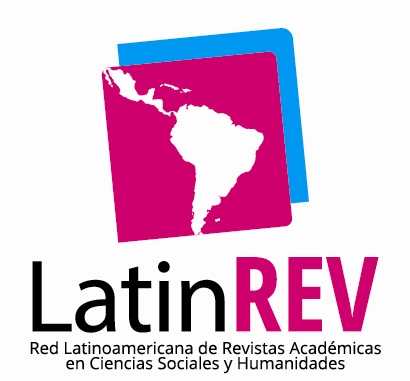About the Journal
Index
- 1 - Scope and approach
- 2 - Publication fees
- 3 - Section policy
- 4 - Peer review system
- 5 - Publication frequency
- 6 - Open access policy
- 7 - Digital preservation
- 8 - Academic quality
- 9 - Code of conduct and best practices
- 10 - Plagiarism detection policy
- 11 - Indexing
- 12 - Conflicts of interest
- 13 - Copyright
- 14 - Self-archiving policy
- 15 - Interoperability protocol
- 16 - Artificial intelligence
1 - Scope and approach
REVISTA FUNDAMENTOS ISSN 2545-6318 is a biannual scientific journal published by the Faculty of Economic Sciences of the National University of Río Cuarto, which disseminates and edits original research in the field of economic sciences. Its main objective is to promote the dissemination of scientific and technical contributions that address methodological and epistemological issues and foundations of Economics, Administration, and Accounting, as well as qualitative and quantitative studies that shed light on traditional objects of study and new disciplinary issues. Fundamentos does not charge any fees for publishing or accessing its content. This journal provides immediate open access to its content under the principle of making research freely available to the public.
The journal is aimed at teacher-researchers, thesis students, and postgraduate students who conduct scientific and technical work in fields related to economic sciences. Each year, issues are published in June and December.
2 - Publication fees
Fundamentos does not charge any fees for publishing or accessing its content. This journal provides immediate open access to its content under the principle of making research freely available to the public.
3 - Section policy
The publication consists of the following sections:
- Articles: Unpublished research that is original in the field of economic sciences. These are expected to stand out for their methodological and technical rigor, as well as for stimulating critical reflections on a study topic.
- Essays: Writings that express an idea or opinion of the authors on a specific topic, issue, approach, or reality subject to problematization by economic sciences. The main goal is to express the author's point of view on the identified theoretical, empirical, and methodological issues.
- In memoriam: Tribute writings for the passing of notable researchers whose contributions have been made in the field of economic sciences. This section serves as a space for recognizing local and international social scientists.
- Book reviews: A critical analysis of a recently published work. The works reviewed should be those expected to stimulate disciplinary debates.
REVISTA FUNDAMENTOS ISSN 2545-6318 accepts contributions for all its sections, in Spanish, Portuguese, and English, submitted by researchers and teacher-researchers from all Universities and Institutes of Science and Technology.
The opinions expressed in each work are the responsibility of the authors.
Editorial: Indexed
Article: Submission by open call - Evaluation: peer-reviewed. Indexed
Essay: Submission by open call. Indexed
In memoriam: Submission by open call. Indexed
Book reviews: Submission by open call. Indexed
4 - Peer review system
The editorial board is responsible for initially evaluating the methodological and thematic relevance of the submissions intended for publication in the various sections of the journal.
Once the first review stage is passed, the articles are subjected to external evaluation through a double-blind peer review system. In this stage, two academics selected by the editorial board, after consultation with the editorial committee, participate based on their methodological and thematic affinity with the submitted article. If there is a disagreement in the evaluations provided by the initially invited reviewers, the work is submitted to a third evaluation.
Once the external review is completed, which may include revisions to the original work by the authors, the director, together with the responsible editor, after a meeting with the editorial board, makes the final decision.
External reviewers will be invited to evaluate works via email. Within 7 calendar days, they must inform whether they accept the invitation made by the journal's editorial team. From the formal acceptance, the reviewer will have a maximum of 30 calendar days to submit their evaluation.
The anonymous reviewers will conclude the review process, determining that, in their opinion, the work should be:
- Accepted for publication.
- Accepted for publication, pending minor revisions. The Editor must verify compliance with the reviewers' observations.
- Accepted with revisions. Subject to supervision by the involved reviewers, who will verify compliance with the conceptual, methodological, and formal observations suggested.
- Rejected.
In all cases requiring revisions, the submission of the new version must be completed within a maximum of 20 calendar days. The submission with revisions is only in digital format.
5 - Publication frequency
REVISTA FUNDAMENTOS ISSN 2545-6318 is published biannually. Two issues are published each year. The first covers the period from January to June, and the second from June to December.
The publication is available in both print and digital formats.
6 - Open access policy
Fundamentos is an open-access journal, meaning that all content is freely available without charge to the user or their institution. Users can read, download, copy, distribute, print, search, or link to the full texts of the articles, or use them for any other lawful purpose, without asking for prior permission from the publisher or the author.
The scientific journal of FCE-UNRC, faithful to the spirit of democratizing scientific knowledge, operates under an open access (OA) system. This ensures free access to information and unrestricted use of digital resources by all individuals. All this, without undermining the recognition of the authors' copyright in each volume.
REVISTA FUNDAMENTOS ISSN 2545-6318 does not charge authors who choose to submit their scientific work for review.
The contents of Fundamentos are distributed under the Creative Commons license Attribution-NonCommercial-ShareAlike 4.0 International.
This regulation allows users to share and adapt the text as long as they give credit to the author, do not use it for commercial purposes, and share any derivative work under the same license.
7 - Digital preservation
Fundamentos uses the PKP Preservation Network (PKP PN). This storage system allows journals managed on the OJS (Open Journal Systems) platform to safeguard their content digitally by creating permanent archives of the journal for preservation and restoration purposes.
8 - Academic quality
The works published in REVISTA FUNDAMENTOS are original, and their disciplinary relevance is guaranteed by the Editorial Committee. In the case of articles, the quality of the scientific production is overseen by the double-blind peer review system.
REVISTA FUNDAMENTOS informs authors of the reasons for acceptance or rejection of articles, providing a report with the evaluations issued by external reviewers.
The journal has an editorial committee, an academic advisory board, and a list of reviewers. It also has a director, an editor, associate editors, and editorial assistants.
The list of reviewers is approved by the Board of Directors of FCE-UNRC and consists of nationally and internationally recognized researchers.
After each issue, the participating reviewers are acknowledged by the Secretariat of Science and Technology of FCE-UNRC.
9 - Code of conduct and best practices
REVISTA FUNDAMENTOS adheres to the guidelines set by the Code of Conduct and Best Practices established by the Committee on Publication Ethics (COPE) (Code of Conduct and Best Practice Guidelines for Journal Editors and Code of Conduct for Journal Publishers).
In line with its commitment to the principles of this code, the journal ensures the relevance and academic standards of the articles. It also ensures fair and proportional treatment of readers, reviewers, and authors. The director, in collaboration with the responsible editor, ensures compliance. Works that do not meet ethical standards of the profession or are not based on appropriate scientific practices in economic sciences will be rejected.
10 - Plagiarism detection policy
The Editorial Team of REVISTA FUNDAMENTOS seeks to establish a rigorous, transparent, and technology-based plagiarism detection policy, supported by clear editorial processes.
In the author guidelines, the requirement for the originality of submitted works is explicitly stated. Likewise, the submission of unpublished works is a mandatory requirement for the acceptance of originals. Additionally, authors are required to explicitly cite sources in all references, in accordance with the journal's guidelines.
This journal uses the plagiarism detection tool Grammarly to identify textual similarities and potential cases of plagiarism.
If the analyzed text exceeds a similarity threshold of 20%, it is manually reviewed to determine whether it constitutes plagiarism or properly referenced citations.
The editorial process for plagiarism review is as follows:
-
Initial review: Upon receiving a manuscript, the editorial team conducts a preliminary review using the Grammarly software. If significant similarities are detected, the manuscript is rejected before proceeding to peer review.
-
Peer review: Reviewers may also be alerted to potential plagiarism issues and are asked to pay attention to the originality of the content during their evaluation.
-
Manual verification: Not all similarities detected by the software constitute plagiarism. The Editorial Team manually reviews doubtful cases to distinguish between properly attributed citations and actual plagiarism.
Sanctions for plagiarism: Fundamentos will immediately reject works with detected plagiarism. If plagiarism is detected after publication, the journal will retract the article and publish an explanatory note on the website.
11 - Indexing
The journal's director, in collaboration with the editor and the editorial committee, will progressively promote compliance with quality standards to ensure the journal's classification in traditional scientific portals.
12 - Conflicts of interest
REVISTA FUNDAMENTOS is committed to publishing high-quality research, ensuring transparency in the review and publication processes, without any undue influence. Authors, reviewers, and editors must declare any conflicts of interest.
Conflicts of interest may arise in the role of author, reviewer, or editor, affecting the manuscript during the writing, review, or publication process when there are ties to activities or relationships that could improperly influence their judgment.
Authors must declare any conflicts of interest at the end of their work, detailing the nature of such conflicts (employment, consultancies, stock ownership, honoraria, patents, and paid expert testimony).
Editors must declare their conflicts of interest upon receiving a manuscript for evaluation, declining to review it and clarifying the reason for the conflict.
13 - Copyright
Acceptance of contributions by the journal implies the non-exclusive transfer of the authors' patrimonial rights to Fundamentos, which allows reuse after publication under the Creative Commons (CC) CC BY-NC-SA 4.0 International license. This license permits users to read, download, copy, distribute, print, search, or link to the full texts of the articles, provided that they give credit to the author, do not use the material for commercial purposes, and license their new creations under the same terms.
Authors retain all moral rights to their publications and may reuse their works under the terms of this license.
14 - Self-archiving policy
Fundamentos allows self-archiving of the pre-print and post-print versions, both on authors' personal websites and institutional repositories.







